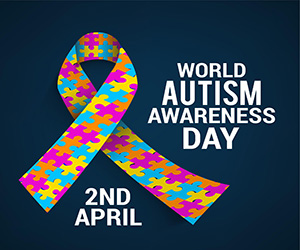If your social media feeds are anything like mine, you can’t get very far in them without catching wind of the latest celebrity being “cancelled” or seeing someone propose who the next one to cancel should be. Twitter hashtags and the influence of widespread movements for accountability, namely #MeToo and the current cries for accountability in the American police force, gave rise to this “cancel culture.”
For those who don’t know, to cancel someone is essentially to subject them to social death, to excommunicate them from public life because of suspected or substantiated wrongdoing. At the movement’s heart, then, is a basic morality and belief in justice and due repercussions. For example, Harvey Weinstein, superstar film producer turned convicted and detained sexual abuser was one of the first big names to be cancelled. He almost unequivocally lost the public’s support once news and evidence of his abuse allegations came to light. Bill Cosby and R. Kelly have entertained similar levels of infamy and ostracization for their records of sexual abuse. But the core critique of cancel culture is that we don’t always see it target such obviously iniquitous figures. It is true that we should be concerned about any movement that seeks to punish serial rapists the same way it punishes people who make boneheaded tweets.
Not long ago, the #CancelJemele hashtag was gaining traction on Twitter. Most people using the hashtag were condemning sports journalist Jemele Hill as transphobic for an eleven-year-old tweet in which she admits that she found the nickname “Manny the Tranny” both “inappropriate and hilarious.” I hope we can agree that this clearly tone-deaf tweet, while hurtful to some and unnecessary to all, does not warrant the social ruin we believe is deserved of sexual deviants, violent racists and other legitimate criminals. There were calls to cancel rapper J. Cole after his last single struck a nerve with much of the Black community, who felt that the song, which constituted a confession and explanation for his relative silence in the wake of protests against police brutality and racism, was misogynistic and/or egoistic at points. This is perhaps the foremost example of cancel culture’s perversion. To cancel someone was never about simple disagreement or decade-old tweets. Many people attempting to cancel others today do so out of a particular and often biased disapproval of a celebrity’s actions rather than an objective analysis of the “cancellable” activity. Because the latter is nearing obsoletion, more and more things are becoming cancellable.
But the many zealots of the culture do not negate the importance of its original purpose, just as the worst members of any group do not speak for the group itself. Those who want to cancel everything that doesn’t sit quite right with them are just as confused as those who write off cancel culture on the whole as overzealous, virtue signaling and the emphasizing of emotional responses above logic. How can we reasonably believe that Jemele Hill is deserving of social death for what she did?
There is no debating that the original aims of cancellation have veered far off-course, but this is simply endemic to any group of people that we expect to be just and impartial. Cancel culture has made anyone who uses social media into a gatekeeper of the public arena and armed them with the threat of total career annihilation to anyone who rubs one of them the wrong way. As humans, we are already inclined toward bias and folly, and the potential for both increases exponentially in a position where only the qualification is a Twitter account.
The talk I hear about how cancel culture needs to be done away with reminds me of a conversation I once had in high school. Upon hearing my friend use the word “feminist” derogatorily, I asked him what he had against the party in question. He told me that he disliked feminists because they hate men. Surely you can spot the problem. Not every feminist hates men and not every person calling for someone to be cancelled is being “emotional.” In fact, it could even be said that someone who hates men can’t be a feminist, since feminists believe in equality and equity between the sexes. Like the case of my friend, it appears that much of the animosity of the day is bred and steeped in ignorance. Perhaps some time spent off of social media could be helpful.
In conclusion, cancellers: Perhaps we should focus less on Jemele Hill and more on the real threats to our society, like the ever-growing class of politicians and millionaires with verifiable records of misconduct, or at the very least people whose transgressions took place in the last ten years. Surely some of us have made a mistake since 2009. 2010? That was like yesterday, you monster.


















Add comment